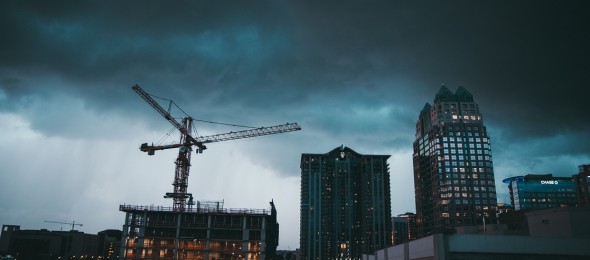An interesting article focused on the arbitration of construction disputes was recently published by Dean B. Thomson and Jesse R. Orman, shareholders in the Construction Law Department of Fabyanske, Westra, Hart & Thomson, P.A., in Minneapolis. The article, titled “Inside the Black Box: The Preferences, Practices, and Rule Interpretations of Construction,” (Journal of the ACCL, Vol. 12, No. 2, Summer 2018 Edition), is based on a survey that included contributions from numerous College of Commercial Arbitrators (“CCA”) Fellows. According to the article abstract, the publication “compares conceptions about construction arbitration, gathered from the Industry and Advocate Surveys, to what construction arbitrators actually do, as shown by the Arbitrator Survey.”
The introduction states:
When parties and their counsel consider whether they want to arbitrate a construction dispute, the data on which they can draw to make an informed decision is surprisingly limited. If they were involved in litigation, they could refer to multi-volume procedural treatises and the Federal Rules Decisions, and know, based on written precedent, what processes to expect, how judges interpret the rules of civil procedure, and how and why judges make their decisions. If counsel and their clients are involved in or considering arbitration, however, comparable resources are not available to them. Arbitrator hearings and awards typically are confidential and cannot be accessed freely by third parties. If one wants to know what to expect, one must rely on personal, hard-earned, but limited, experience in arbitration or the anecdotes heard from other advocates or arbitrators. Otherwise, the arbitration process resembles an unknown “black box.”
To illuminate that box, the authors developed a survey to ask those who had actually served as construction arbitrators how they act regarding a variety of questions, issues, and situations (the “Arbitrator Survey”). At approximately the same time, the authors also obtained data from a survey conducted by the American Arbitration Association (“AAA”), which asked a set of questions very similar to those in the Arbitrator Survey, but was sent to attorneys who had acted as advocates in a construction arbitration (the “Advocate Survey”). The AAA also later surveyed a variety of industry representatives, such as design professionals, contractors, and owners, regarding their perceptions about arbitration (the “Industry Survey”).
This article will compare conceptions about construction arbitration, gathered from the Industry and Advocate Surveys, to what construction arbitrators actually, do as shown by the Arbitrator Survey. The results reported here should help advocates and their clients make more informed decisions about whether arbitration is an attractive dispute resolution option, whether it delivers on its promise, what rule revisions might improve arbitration procedures, and how to draft arbitration agreements to get the process parties want.
Part I of the article discusses the background and experience of the construction arbitrators who responded to the Arbitrator Survey, the industry professionals who responded to the Industry Survey, and the attorneys who answered the Advocate Survey. Part II follows the progression of a typical arbitration and discusses: arbitrator selection and appointment; arbitration demands and other initial proceedings; discovery; pre-hearing motions; and, the hearing itself. Part III of the article focuses on the culmination of an arbitration—the award. Finally, Part IV concludes with observations about construction arbitration.
You may download the full text of the authors’ construction arbitration article from the CCA website.
H/T to Paul Lurie for alerting Disputing to this publication!
Photo by: Kal Loftus on Unsplash














